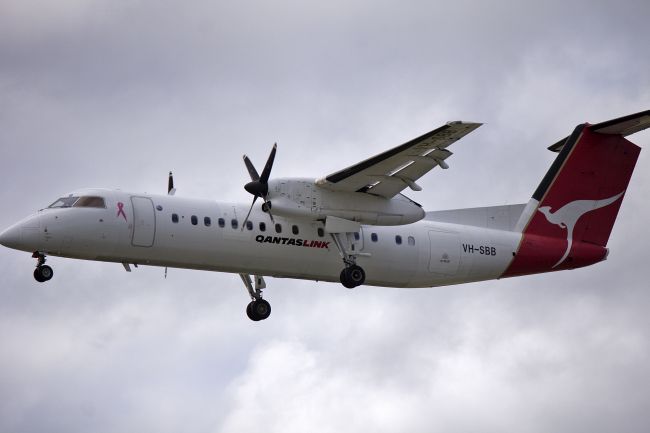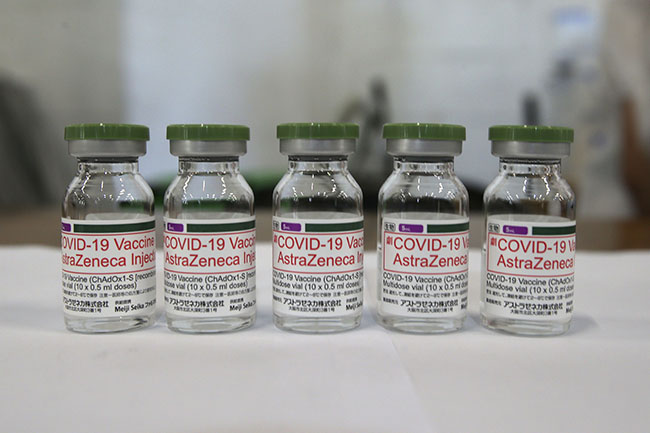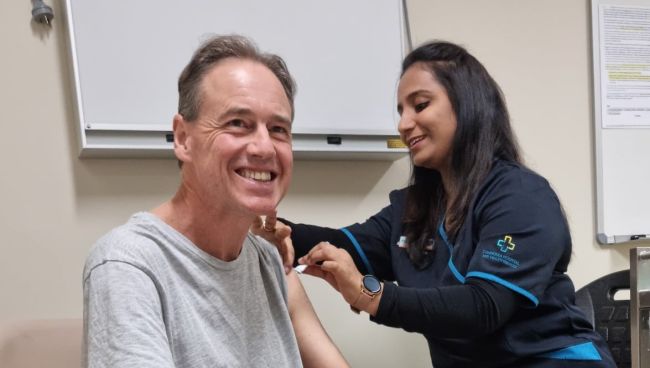Selected
- Details
- Written by Grant Broadcasters
- Category: Selected
- Hits: 277
Woolworths is facing legal action for allegedly underpaying managers, with the workplace watchdog hunting more than $710,000 in outstanding back pay.
The Fair Work Ombudsman has launched Federal Court action against the supermarket giant over allegations it underpaid 70 salaried managers upwards of $1.1 million.
The regulator claims $713,395 has not been returned to the employees.
Woolworths disclosed underpaying thousands of employees in 2019 with the back-pay bill later calculated to cost the company around $390 million.
The admission sparked an investigation which assessed the records of 70 managers' work between March 2018 and 2019.
The alleged underpayments range from $289 to $85,905 for the 70 managers over the one-year time frame.
The ombudsman alleges the most significant underpayments were Woolworths' failure to pay the correct overtime entitlements to the salaried managers.
It will also try to prove annual salaries did not cover weekend and public holiday rates, meal allowances and annual leave loading, given the hours employees worked.
Fair Work Ombudsman Sandra Parker said it would be alleged salaried managers were significantly underpaid.
"This court action highlights that large employers face serious consequences if they do not prioritise workplace law compliance among other aspects of their business," she said.
Woolworths employed about 19,000 salaried managers between June 2015 and September 2019.
Woolworths Group chief executive Brad Banducci welcomed the opportunity for the court to clarify the issue.
"Since 2019 our highest priority has been, and continues to be, addressing the issue of underpayments for our team, and to ensure that it doesn't happen again," he said.
In a statement, Woolworths said it was reviewing the proceedings and described the matter as having complex legal issues involved.
"They address issues over which there is considerable uncertainty," the company statement said.
"The Woolworths Group remediation process to date has involved extensive calculations, assessment and review."
Woolworths Group shares were trading lower by 1.56 per cent to $42.67 shortly after 1pm AEST.
© AAP 2021
Image Credit: Vakrieger, CC BY-SA 4.0, via Wikimedia Commons
- Details
- Written by Grant Broadcasters
- Category: Selected
- Hits: 252

Australia's coronavirus-hit airline industry is showing signs of recovery, partly on the back of the federal government's half-price domestic flights.
The Australian Competition and Consumer Commission released its fourth airline competition report on Thursday.
It showed total passenger numbers for domestic flights in March were 55 per cent of pre-pandemic figures, up from 41 per cent in December.
The federal government announced in March it would subsidise 800,000 tickets to 15 destinations across the country, with almost all being snapped up, the ACCC says.
"Prior to the recent Victorian outbreaks, the domestic airline industry had experienced relatively fewer and less significant disruptions for a number of months," chair Rod Sims said in a statement.
"The combination of cheaper airfares and growing consumer confidence to travel interstate was critical to the recovery."
The ACCC says while airline expectations may have been downgraded since Victoria's recent lockdown, Qantas had forecast capacity would reach 95 per cent of pre-pandemic levels by June.
Both Qantas and Jetstar expect to exceed 100 per cent in 2021/22, while Virgin had forecast its capacity would reach 85 per cent of pre-pandemic levels by mid-June.
The ACCC says passengers travelling between capital cities have greater choice, with 18 per cent in March flying on routes with three airlines, compared to 1.5 per cent pre-pandemic.
This number is expected to have increased since March, as Rex has now launched more services, it says.
Rex has publicly raised concerns that rival carriers have been increasing capacity beyond passenger demand.
The ACCC says it is assessing the impact on competition of expanding capacity and discounting airfares on certain routes.
© AAP 2021
Image Credit: Bidgee, CC BY-SA 3.0 AU <https://creativecommons.org/licenses/by-sa/3.0/au/deed.en>, via Wikimedia Commons
- Details
- Written by Grant Broadcasters
- Category: Selected
- Hits: 236

Five bottles of the AstraZeneca COVID-19 vaccine (AP Photo/Chiang Ying-ying)
The AstraZeneca coronavirus vaccine is reportedly no longer recommended for people aged under 60 after new expert immunisation panel advice.
Multiple media outlets on Thursday reported the change, which raises the age from 50, the mark set in April after concerns about extremely rare but serious blood clots.
Health Minister Greg Hunt is believed to have received new recommendations from the Australian Technical Advisory Group on Immunisation about the risks of the side effect.
Two people have died in Australia after developing the clotting condition with both in their 50s.
As of last week, more than 3.6 million doses of AstraZeneca have been administered nationwide since the rollout kicked off in Februrary.
Mr Hunt is meeting with state and territory counterparts to discuss the new advice to discuss potential changes to the immunisation program due to the advice.
NSW Premier Gladys Berejiklian told reporters on Thursday she was aware the advisory group had been meeting over the past few days.
"Those experts have the best information," she said.
The 50-year-old premier has had the AstraZeneca jab.
"What is really important is for us to follow the health advice and when I got my vaccine the health advice was and still is that anyone over 50 should go to the GP and get the AstraZeneca."
© AAP 2021
- Details
- Written by Grant Broadcasters
- Category: Selected
- Hits: 229

Australia's troubled coronavirus vaccine rollout has hit another roadblock after medical experts recommended raising the AstraZeneca age limit to 60.
But Health Minister Greg Hunt insists the nation remains on track to offer all Australians over 16 a jab by the end of the year.
AstraZeneca is now the preferred vaccine for people over 60 with Pfizer recommended for anyone under that age.
The expert immunisation panel ATAGI recommended the change because of extremely rare but serious blood clots that have claimed two lives of people in their 50s.
"For those aged 60 years and above, the individual benefits of receiving a COVID-19 vaccine are greater than in younger people," ATAGI said in a statement.
"The risks of severe outcomes with COVID-19 increase with age and are particularly high in older unvaccinated individuals."
Mr Hunt said people aged 50 to 59 would have to be patient with 2.1 million in that group yet to receive a first dose.
But the minister remains confident Pfizer imports will not cause further supply issues.
There are concerns Australia's strategy has been too heavily weighted on 50 million locally produced AstraZeneca doses.
Deputy Labor leader Richard Marles told parliament the prime minister bet the house on AstraZeneca and now the rollout was in complete disarray.
Mr Hunt is pinning his hopes on the balance of 40 million doses of Pfizer and 50 million Moderna jabs arriving as contracted during this year.
"Pfizer has been a remarkably reliable partner. They have never over-promised and they have always delivered on time," he said.
He expects 3.4 million doses to land in Australia over the next six weeks.
The Victorian government remains at odds with their federal counterparts on Pfizer supply and has asked for longer-term delivery projections to help planning.
Health authorities have encouraged the 815,000 Australians who have had their first dose of AstraZeneca to receive a second jab because of dramatically lower risk than the initial shot.
Opposition Leader Anthony Albanese said fewer than three per cent of Australians had been fully vaccinated against coronavirus.
"The government has failed to meet any of its vaccine targets. It failed to secure enough vaccine deals," he told parliament.
More than 6.2 million doses have been administered nationwide since the rollout started in February.
A coronavirus outbreak in Sydney's eastern suburbs has grown to three cases after a woman was exposed to the virus at a cafe.
A nurse who previously tested positive for COVID-19 while treating infected patients also worked shifts at a second Melbourne hospital.
But Victoria recorded no new locally acquired coronavirus cases ahead of a further easing of restrictions on Friday.
Meanwhile, Australia will closely watch coronavirus hospitalisation numbers in well-vaccinated European nations as the government mulls a return to international travel.
Scott Morrison said the impact of high people movements during the northern hemisphere summer would be revealed.
"If the virus is there but the hospitalisations and the serious illness don't occur and we see that on a sustained basis, well that says there is a potentially different pathway there," he told Sky News.
"But the jury is not in on that yet. New variants like Delta and so on can change all that."
© AAP 2021
Image Credit: Greg Hunt MP Facebook
Page 188 of 191
